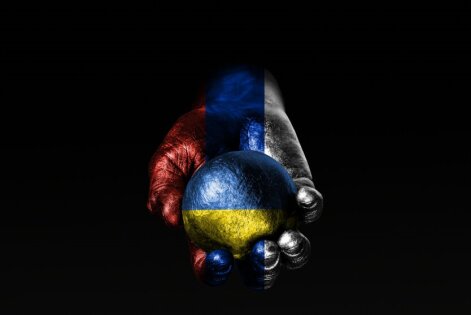The talks of the Kremlin envoy Sergey Ryabkov, who headed the Russian negotiating delegation in Geneva at a meeting with the Americans, in Brussels for a discussion with NATO, and in Vienna during the presentation of the Russian position on security issues in the OSCE, did not lead, as expected, to any result. Moscow tried to firmly prove its case and demand concessions from the collective West on NATO nonproliferation and security guarantees for Russia. They listened to Sergey Ryabkov, but refused to provide any guarantees of non-expansion of the Alliance, stating that each sovereign country itself determines its position regarding its membership in the North Atlantic bloc, including Ukraine. It seems that Moscow was counting on such an answer, and the head of the Russian delegation calmly stated that the negotiations were ineffective, although he threatened with future complications, which Moscow allegedly wanted to avoid. As a result: the collapse of the ruble exchange rate and quotations on the Russian stock exchanges, which reacted to the bellicose statement of Sergey Ryabkov.
But at the same time, we must understand well why Vladimir Putin is sending a negotiating group to receive a refusal in Geneva, Brussels and Vienna. It is clear that a negative result is also a result, but the Kremlin seems to be playing much more subtly. Now it has a kind of carte blanche in front of its own people to the corresponding Russian reaction to the US and NATO's non-perception of Moscow's warning. Therefore, now the entire collective West, and above all Ukraine, needs to mobilize as much as possible to possible Russian provocations and the escalation of the situation on the Ukrainian-Russian border. Moscow has clearly stated that it does not even think of withdrawing the troops, which means it is very likely that they will be entrusted with the mission of conducting a military operation against Ukraine. Given the warnings of the United States and the European Union regarding hellish sanctions in the event of a direct military invasion, Russia is likely to act in a hybrid manner.
The easiest way to disguise an attack on Ukraine with the forces of two corps of separatists in Donbas, where on whose shoulders Russian special forces can also advance. Estimated blow: towards Mariupol-Berdyansk-Genichesk along the Sea of Azov. Before the attack, a provocation will necessarily be carried out, which allegedly led to the need for a response like the attack of Nazi Germany on Poland or the Stalinist USSR on Finland. Rather, a relatively small Russian grouping, but the most combat-ready units, will enter the occupied Donbas, so that it is more difficult to capture it from the US and NATO satellites. The minimum task is the capture of Mariupol, the maximum task is the capture of Berdyansk and "the formation of the Zaporozhye People's Republic", and if they are successful, the capture of Genichesk, the North Crimean Canal and the formation of the "Kherson People's Republic" with the connection of the temporarily occupied territories of Donbas with Crimea. The duration of the operation is two, maximum three days, that is, until the moment when the entire international community rises. And there immediately stop the advance of the troops, fixing the line of stay of the grouping allegedly "DPR" and "readiness to hold negotiations with Ukraine." That, in fact, is all.
The only question remains: is Kyiv ready for such a scenario, and how the collective West will react, given that Moscow will declare that this was the advancement of the so-called 1st DPR corps, to which the “militia” of the Zaporizhzhye and Kherson regions allegedly joined. At the same time, a 150,000-strong Russian military group will come close to a distance of several kilometers to the Ukrainian border with the threat of a direct invasion of Chernihiv or Kharkiv, and from Crimea to Kherson-Odesa. At the same time, Belarus will declare mobilization readiness "in connection with the deterioration of the security situation in Ukraine" in order to make it impossible to transfer Ukrainian troops from the eastern, southern and northern directions.
If the so-called 1st Corps of the "DPR" with Russian reinforcements begins to suffer defeats, which is not excluded, then as soon as the Ukrainian army counterattacks the existing line of demarcation in the Donetsk region, then Moscow will perceive this as a casus belli, that is, a reason for a large-scale war to “protect the Donbas from the Ukrainian attack” and then it will actually use its 150,000-strong military group.
What to do? Continue to monitor as closely as possible all military movements in the Sea of Azov region and try not to respond or moderately respond to outright Russian provocations. With the international support of allies and the correct distribution of military forces, Ukraine can avoid the Moscow military scenario. And after its failure, it should launch a politico-diplomatic offensive against Moscow on all fronts with the widespread use of a tough sanctions policy, which will immediately moderate the ardor of Moscow's hawks.
